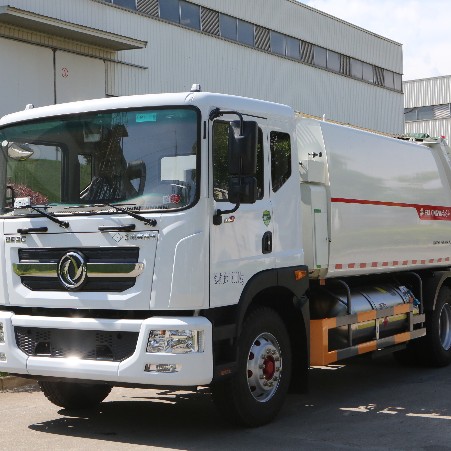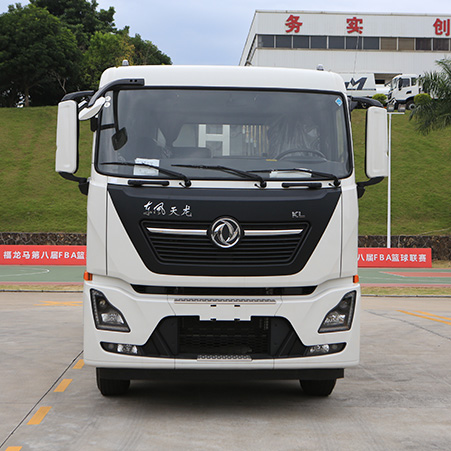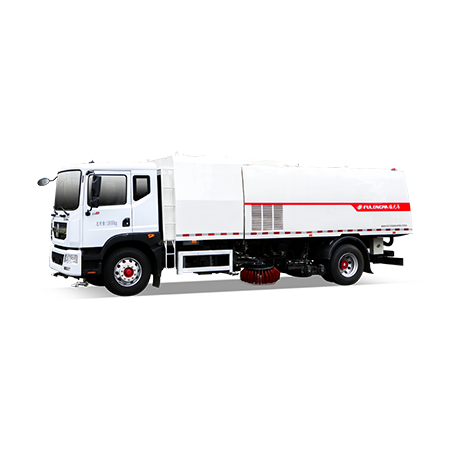Waste management has come a long way from the days of horse-drawn carts hauling away refuse. Today, it’s a sophisticated system involving advanced machinery and technology designed to keep our cities clean and our environment safe. One of the most promising innovations in this field is the rise of natural gas trash trucks. These vehicles represent a significant step towards eco-friendly efficiency in modern waste management.
Natural gas trash trucks are emerging as a groundbreaking solution to the challenges faced by traditional waste management systems. These vehicles run on compressed natural gas (CNG) or liquefied natural gas (LNG) instead of diesel, offering a cleaner, more efficient alternative. By transitioning to natural gas, municipalities can significantly reduce their carbon emissions, lower operational costs, and contribute to a more sustainable future. The adoption of natural gas trash trucks is not just a trend but a transformative shift in how we handle waste management.

What Are Natural Gas Trash Trucks?
Natural gas trash trucks are waste collection vehicles powered by natural gas instead of traditional diesel fuel. They come in various models, including those that use compressed natural gas (CNG) and liquefied natural gas (LNG). These trucks are designed to perform the same functions as their diesel counterparts but with a significantly reduced environmental impact. Natural gas trash trucks are equipped with specialized engines and fuel systems that allow them to operate efficiently on natural gas, providing a cleaner alternative for waste collection.
Differences from Diesel Garbage Trucks
The primary difference between natural gas and diesel garbage trucks lies in their fuel sources. Diesel trucks rely on petroleum-based diesel fuel, which produces high levels of pollutants, including carbon dioxide (CO2), nitrogen oxides (NOx), and particulate matter (PM). In contrast, natural gas trucks use CNG or LNG, which burn cleaner and produce fewer emissions. Additionally, natural gas trucks tend to be quieter, reducing noise pollution in urban areas. The shift from diesel to natural gas also impacts the overall maintenance and operational costs, with natural gas trucks often proving to be more cost-effective in the long run.

Key Components and Functioning
- Natural Gas Engine: Specially designed to run on CNG or LNG, these engines are more efficient and produce fewer emissions than diesel engines.
- Fuel Storage Tanks: These tanks store compressed or liquefied natural gas and are typically reinforced to ensure safety.
- Fuel Delivery System: This system transports the natural gas from the storage tanks to the engine, where it is combusted to power the vehicle.
- Emission Control Systems: Advanced systems that reduce the output of pollutants, ensuring compliance with stringent environmental regulations.
- Telemetry and Monitoring Systems: Modern natural gas trash trucks often come equipped with sophisticated telemetry systems that monitor fuel consumption, engine performance, and emissions, allowing for better management and maintenance.
Environmental Benefits
The environmental benefits of natural gas trash trucks are significant. By using CNG or LNG, these trucks produce fewer greenhouse gases and pollutants compared to their diesel counterparts. Specifically, they emit up to 20% less CO2, up to 95% less NOx, and virtually no particulate matter. This reduction in emissions helps improve air quality, reduce the urban heat island effect, and mitigate climate change. Additionally, natural gas is a more sustainable and abundant resource than petroleum, contributing to energy security and reducing dependence on imported fuels.

Economic Advantages
In addition to their environmental benefits, natural gas trash trucks offer several economic advantages. The cost of natural gas is generally lower and more stable than diesel, resulting in significant fuel savings over the life of the vehicle. Maintenance costs are also reduced due to the cleaner combustion process, which leads to less engine wear and tear. Furthermore, many governments offer incentives and subsidies for the adoption of natural gas vehicles, making the initial investment more affordable. These economic benefits make natural gas trash trucks an attractive option for municipalities looking to optimize their waste management budgets.
Emerging Trends
- Electrification: While natural gas is a cleaner alternative to diesel, the ultimate goal for many cities is to transition to fully electric waste collection vehicles. Hybrid models combining natural gas and electric power are already in development.
- Automation and AI: Advanced technologies such as automation and artificial intelligence are being integrated into waste management systems to improve efficiency, reduce costs, and enhance service delivery.
- Smart Waste Management: IoT and data analytics are being used to optimize waste collection routes, monitor bin levels, and predict maintenance needs, further increasing the efficiency and sustainability of waste management operations.
- Circular Economy: A growing focus on recycling, composting, and waste-to-energy initiatives is transforming waste management from a linear process to a more sustainable circular economy.
Conclusion
Natural gas trash trucks represent a significant advancement in the quest for eco-friendly efficiency in waste management. By reducing emissions, lowering operational costs, and offering a cleaner alternative to diesel, these vehicles are paving the way for a more sustainable future. As technology continues to evolve and new trends emerge, the adoption of natural gas and other clean energy solutions will play a crucial role in shaping the future of waste management.






